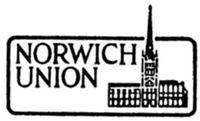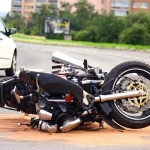 Contributed by David French, Where to from here? is another in our series of feature articles. This piece was previously published in the August 2014 issue of Bike Buyers Guide.
Contributed by David French, Where to from here? is another in our series of feature articles. This piece was previously published in the August 2014 issue of Bike Buyers Guide.
David is a founder member of MAG Ireland and has occupied various roles in the organisation. He has written for several magazines and his main interest is long-distance touring.
MAG Ireland is thirty years old this year, so what does the future look like?
The first question is should there even be a future? Should Irish riders continue to have a representative body or should we just spend the time enjoying motorcycling?

The 80’s, when one insurance company had a total monopoly.
Back in the 80’s the formative issue for rider’s rights in Ireland was insurance premiums and riders as a community responded, although the narrative wasn’t always simple and the concern was far from universal.
Back then many older riders were doing just fine as they had motorcycles covered under car policies or had sufficient experience and low premiums. Those of us in our 20s were the ones facing the real problem, and so IMAG was formed.
A decade later IMAG was instrumental in blocking the 100bhp limit that would have hit the very sport touring motorcycles preferred by those older riders. Later still the big issue was licence harmonisation which affected very few of us directly but which strangled the numbers coming into motorcycling.

The EU – A major influence on motorcycling.
So what’s affecting motorcycling in 2014 that Irish riders need to be able to respond to? This summer MAG Ireland is providing a response to the RSA consultation on the driving test.
It’s no use crying into your pint that car drivers are never taught to look out for riders. It’s also no use complaining about the lack of motorcycle awareness ads on TV when you’re stopped at a service station. Get involved and say it instead to the responsible minister’s face, to the civil service, to the media and to other interested parties.
In general, the government actually want to hear from us. They need a group they can call on to provide a balanced view on motorcycling. Much political support is there for the asking. Simply ride to Brussels or Dublin, talk to a politician and you’ll often get a fair hearing. Do it at the right time, have your facts straight, and with a group of voters behind you’ll often get their support.
Over the years we’ve heard all sort of unsupported nonsense from well-meaning but misinformed politicians who reckoned one quick fix would “solve the motorcycle problem” earning them some brownie points in the process.
We’ve heard that we all need ABS, that we all need full-face helmets and lately that we all need full body high visibility luminous clothing day and night. Actually, what we really need is car drivers to stop hitting us.

Padraig Flynn in 1989
Image credit: Photocall Ireland/Thejournal.ie
In the eighties we had the self-serving Commissioner Padraig Flynn introduce the 125cc restriction and we saw fatalities increase in the following years.
It didn’t matter to him because by then he’d earned his political capital. That’s the real price of a quick fix. It hurts motorcyclists and motorcycling and the only real defense is logic, persistence and democratic involvement.
As a minority group, we riders are a soft target. The industry supporting us in Ireland is small and the image of motorcycling is prone to misuse for political gain. We need to be able defend ourselves and our choices because for any half-baked idea it’s not that hard to find a handful of motorcyclists who’ll support it and who can be trotted out as “evidence” that this is what “motorcyclists” want. Random car drivers however, are never seen as representative of motorists. That’s the job of the AA.
Motorcycling requires and deserves similar representation. Safety stats are trotted out to defend each and every restriction on motorcycling but scandalously few resources are spent digging into the details.

Research, not restriction.
How many of the accidents would really be prevented by the proposed restrictions? How many accidents were flagrantly outside the laws on drunk driving, licensing or even theft already? How do the accident rates compare to the accident exposure – the type and number of kilometers being ridden by which type of rider that year? This level of analysis does not come cheap but is necessary to inform effective policy.
Yet it’s not all about government and threats and doom and gloom. Motorcycling is on the verge of probably the biggest change in its hundred plus years of existence. Electrics are about to start changing the landscape. There is every indication that the fastest lap of the TT circuit will be taken by an electric motorcycle within the next couple of years.
Back in the four wheeled world there is also an immense change on the way with the steady introduction of automatic systems ranging from obstacle detection to complete driving. Unlike regular car drivers these systems do have eyes in the back of their head, they do not fall asleep, they do not panic and they always indicate. Is this good and where do motorcycles fit in this picture?

MAG Ireland
30th Anniversary
Every indication right now is positive, but as usual we need to keep our eyes open and know what is going on around us as a group. If nothing else, the next thirty years will be extremely interesting.
Two wheeled vehicles, powered or not, offer immense advantages for society, reducing traffic congestion, reducing urban air pollution, and improving quality of life. It is up to those who understand this to promote and protect motorcycling.
For many of us, motorcycling is much more than a means of getting from A to B efficiently and there is a shared interest, a bond, with others who see it the same way. This is what drives people across Ireland to give something back to motorcycling whether it’s organising motorcycle events, doing charity work which improves our image, or training new motorcyclists.
As to the question of whether Irish riders should have a representative body the need is glaringly obvious. The real question is how do we make it happen? How should Irish motorcyclists organise and work together with other pro-motorcycling parties such as dealers, importers, publishers, event organiser’s and trainers to keep what we love alive?
What our future looks like is up to all of us with an interest in Irish motorcycling, including you.
Like this? See our list of feature articles:
https://www.magireland.org/category/features/
More by David French:
https://www.magireland.org/2013/news-media/all-the-torque-all-the-time/
